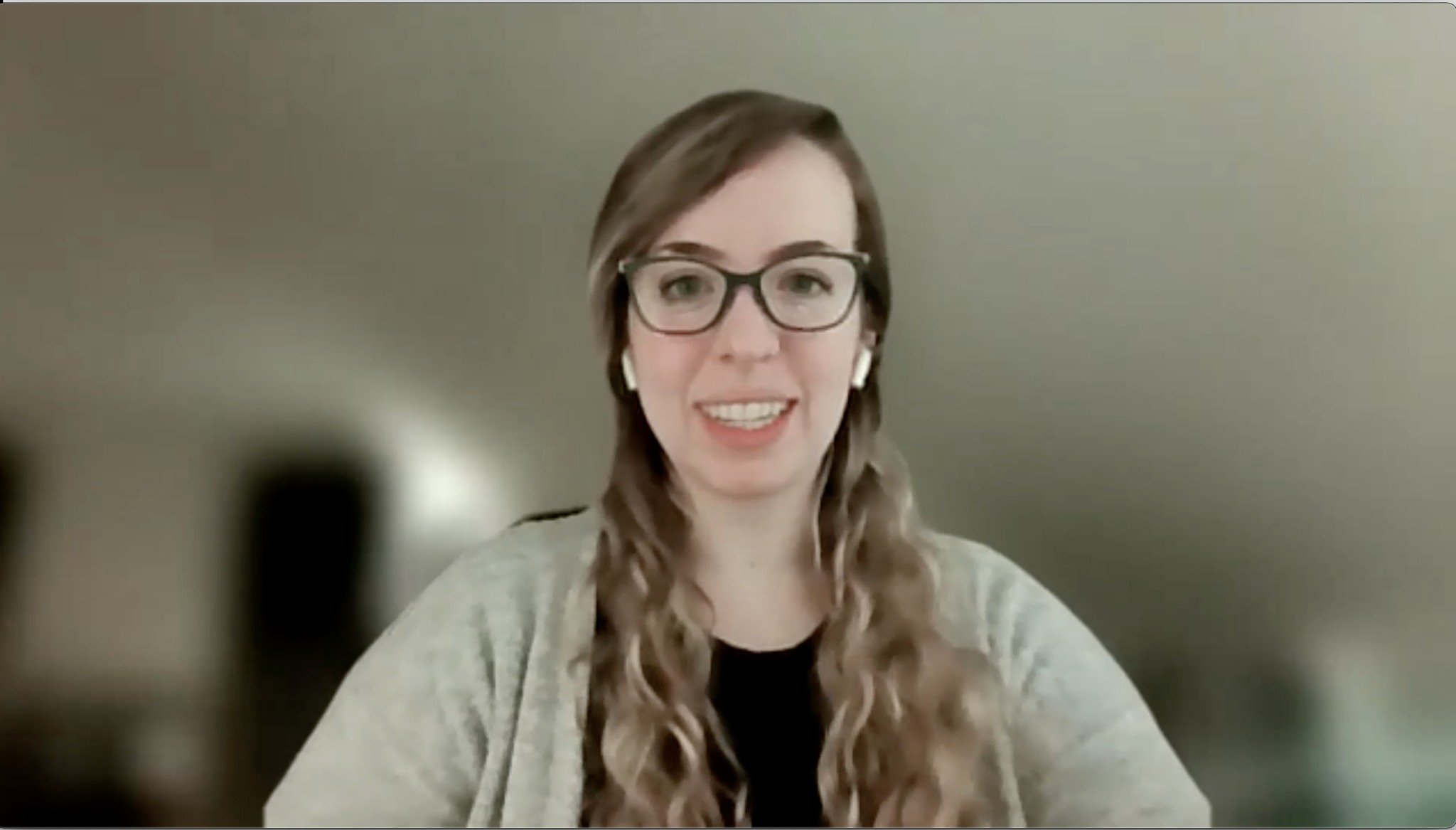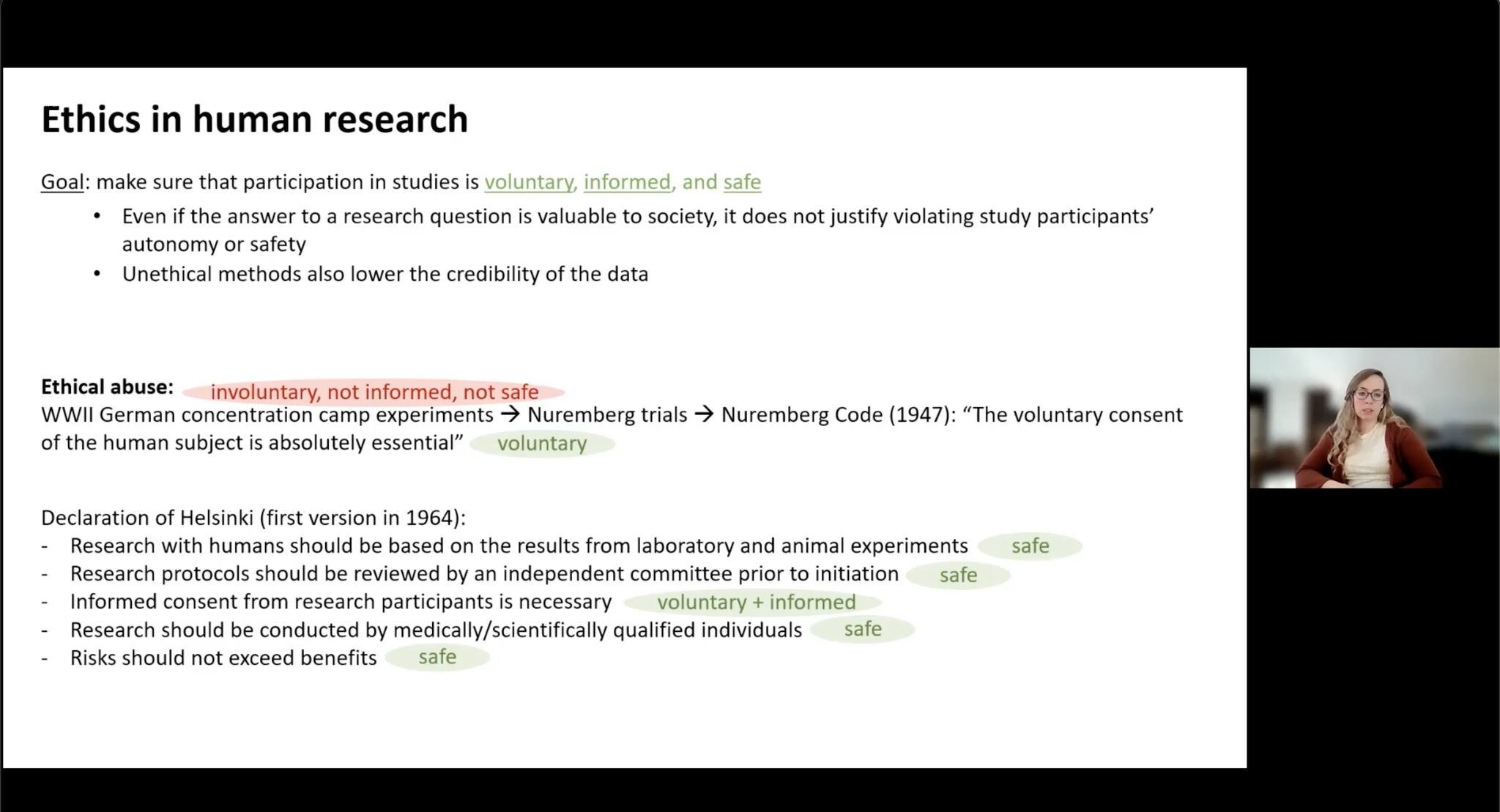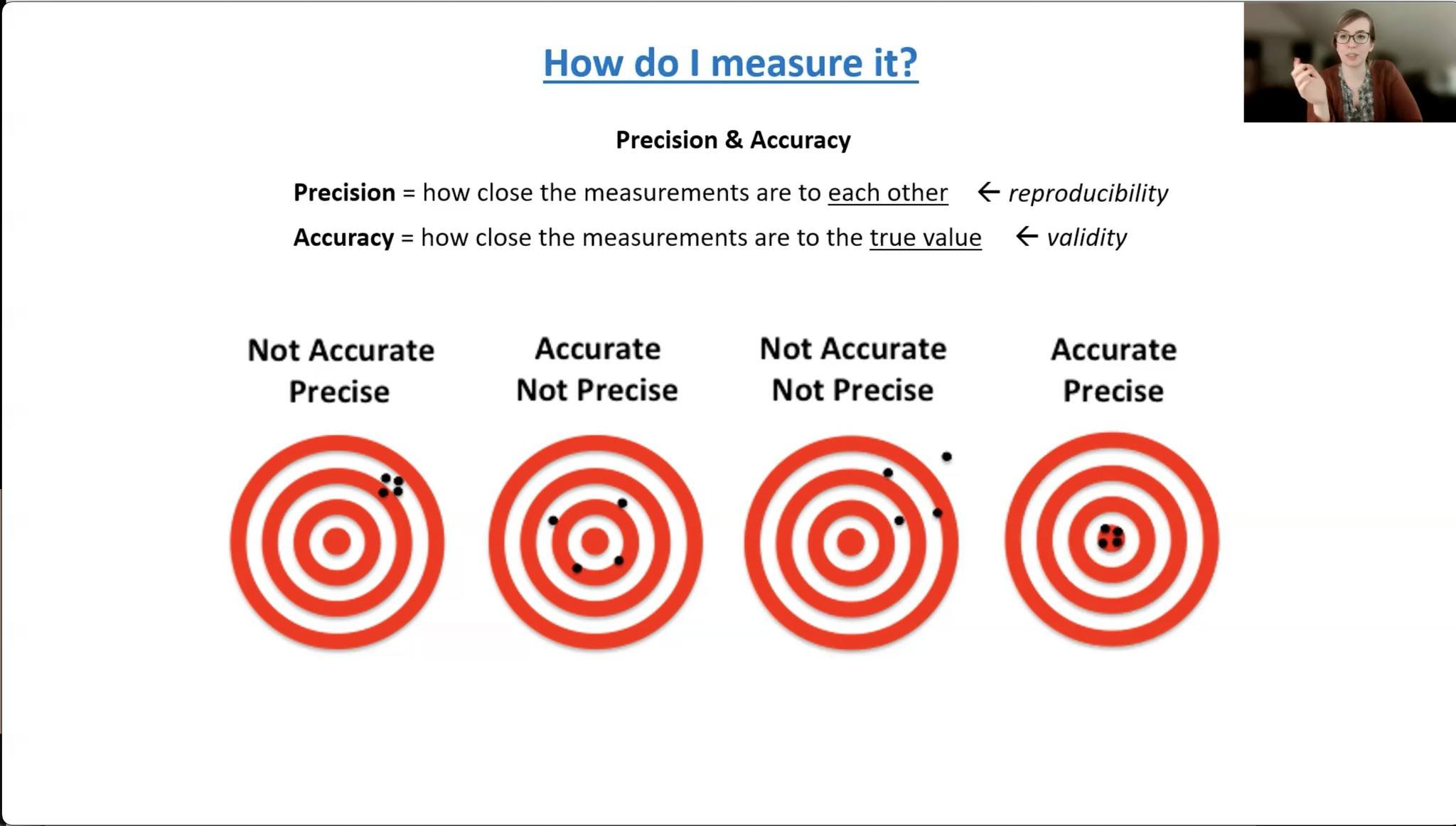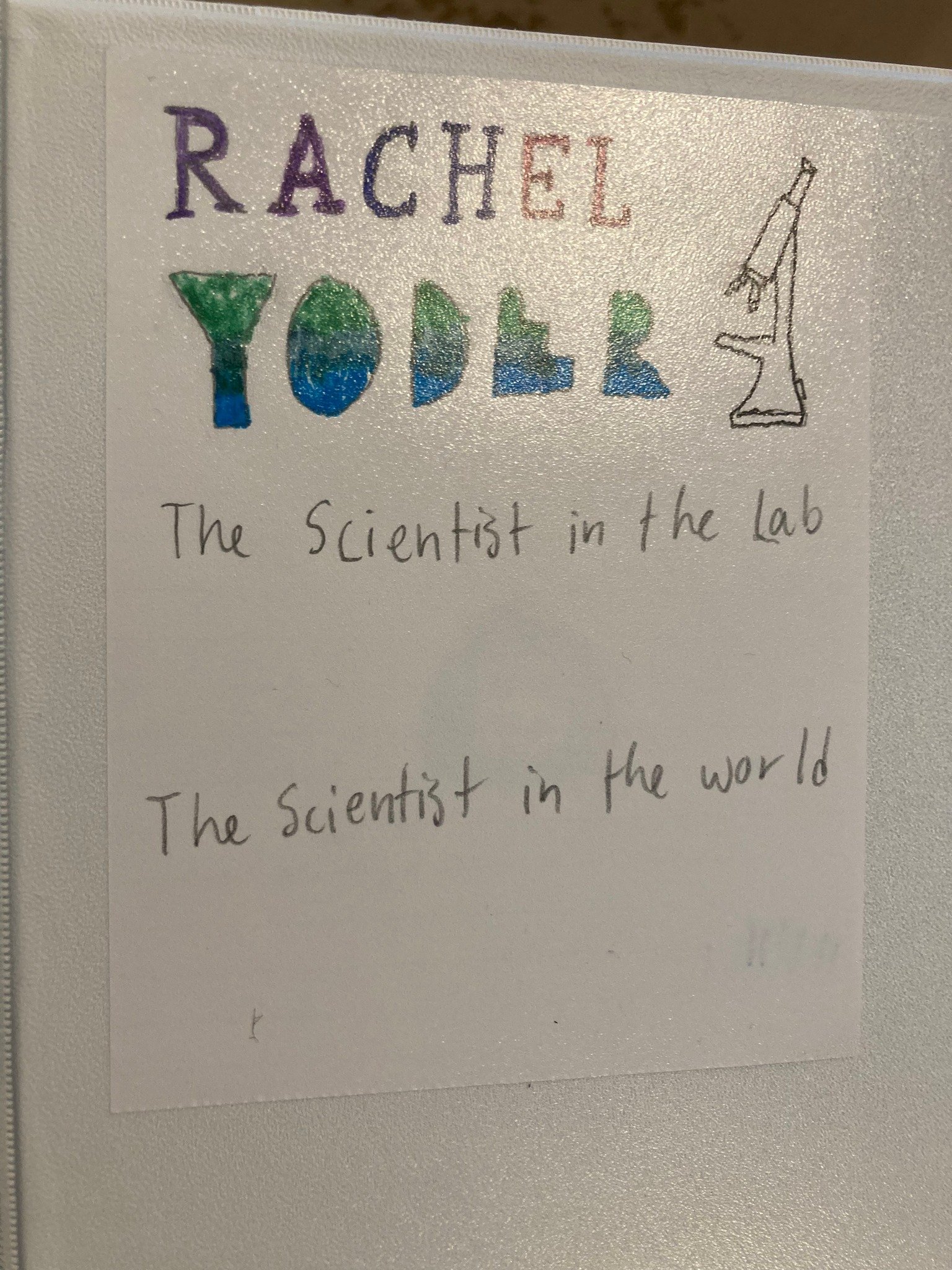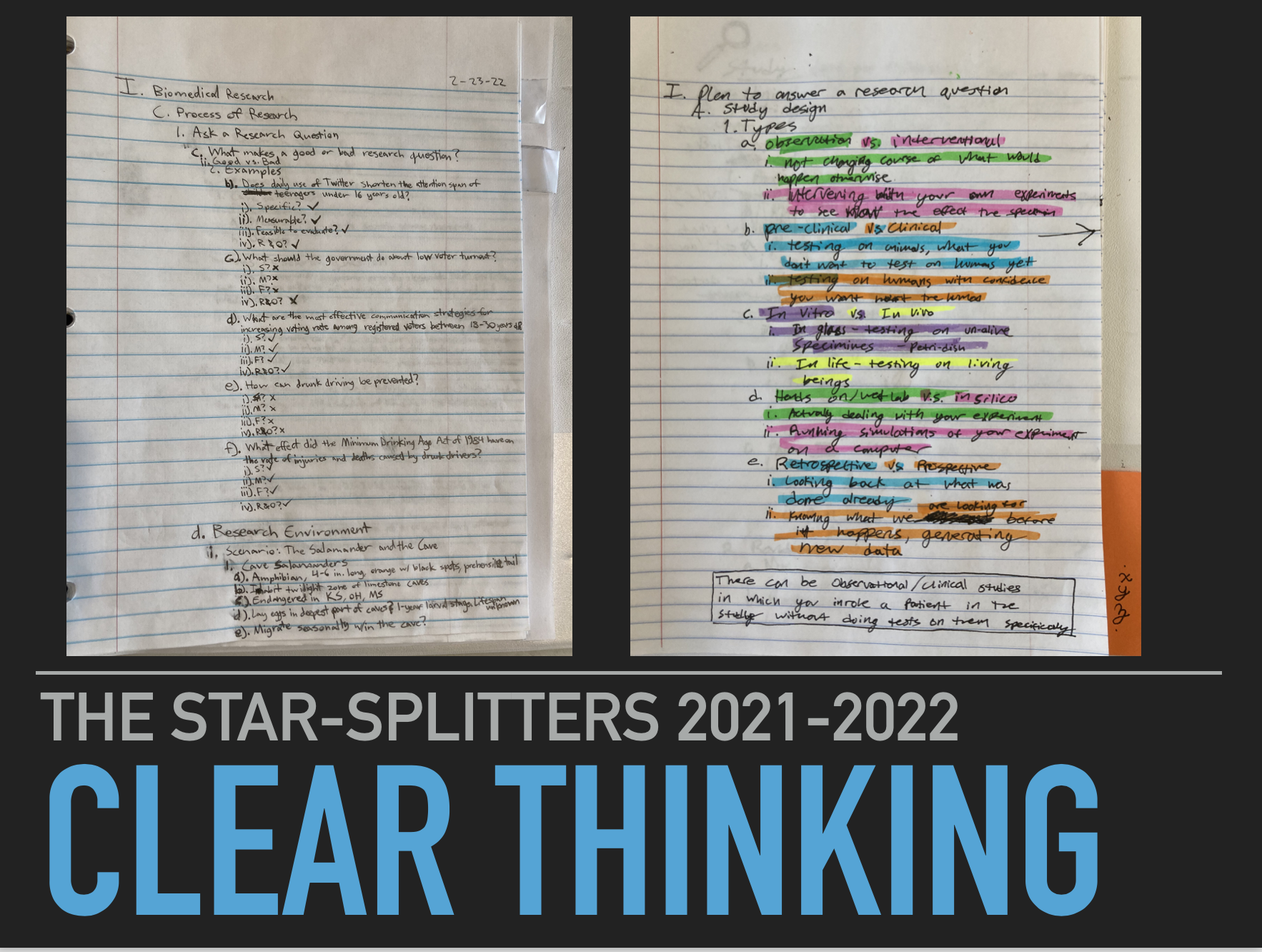The Scientist in the Lab / The Scientist in the World
In this deep-dive, taught by leading cancer researcher Rachel Yoder, we learned the life cycle of a research question (with a special emphasis on biomedical research), the designs of scientific studies, ethics in scientific research, and genetics.
Rachel led us through the process of identifying research problems and then devising and refining research questions that can lead to a positive impact on people’s lives in terms of the improvement of standard of care.
Along the way, we learned criteria for evaluating investigable, useful questions, engaged in critical thinking to evaluate hypothetical questions, and learned of the research problems Gregor Mendel faced in the nineteenth century, as well as some of the questions that he cultivated in his garden, which came to change our understanding of life itself.
Rachel also led us into conversations about ethics in science and in research, and about the role and responsibilities of a scientist in the public square.
Students gained a working vocabulary and understanding that they can use throughout their lives, whether engaging in further formal learning or having the confidence to go behind the headlines regarding scientific issues, particularly in biomedicine.
As always, our learning was wedded to wonder. We learned, for instance, the distance our DNA would span were it to be stretched and set out end-to-end: each of us, we came to discover, holds ten billion miles within us, enough to stretch to the sun and back sixty-one times. Our species' collective DNA would extend 11.2 million light years, enough to stretch to the Andromeda galaxy and back, and there and back, and there and back.
And, as with all of our deep-dives that are co-taught by an expert collaborator, we learned from a current, dynamic maker in the field, one who connects the concepts to the present moment, and inspires students to know that they, too, can be innovative makers in whatever field they choose. This class was co-taught by Rachel Yoder, a leading cancer researcher who is part of a research team that recently made a discovery about protein signatures that could radically improve outcomes for patients with certain forms of breast cancer.
At the same time, as always, students learned clarity of thought and expression. Students have continued their regular practice of outlining. They outlined Ms. Yoder's lectures, and thus continued to see the cognitive maps that clear thinkers follow when communicating ideas. They also outlined their own ideas in the form of analytical paragraphs in which they applied to real-world and hypothetical cases what they'd learned about clinical trials or research ethics or the qualities of a good research question or the difference between accuracy and precision in data analysis.
Even as the students were learning the subject matter at hand, they were learning, by virtue of their teacher, what it means to be a maker in the realm of science--how to face the unknown, and, by using all of the tools and habits of mind of a liberal artist (clarity of mind, precision, rigor, analysis, creativity, compassion, perspective, collaboration, etc.) shed new light, break new ground, cultivate green shoots of hope.
